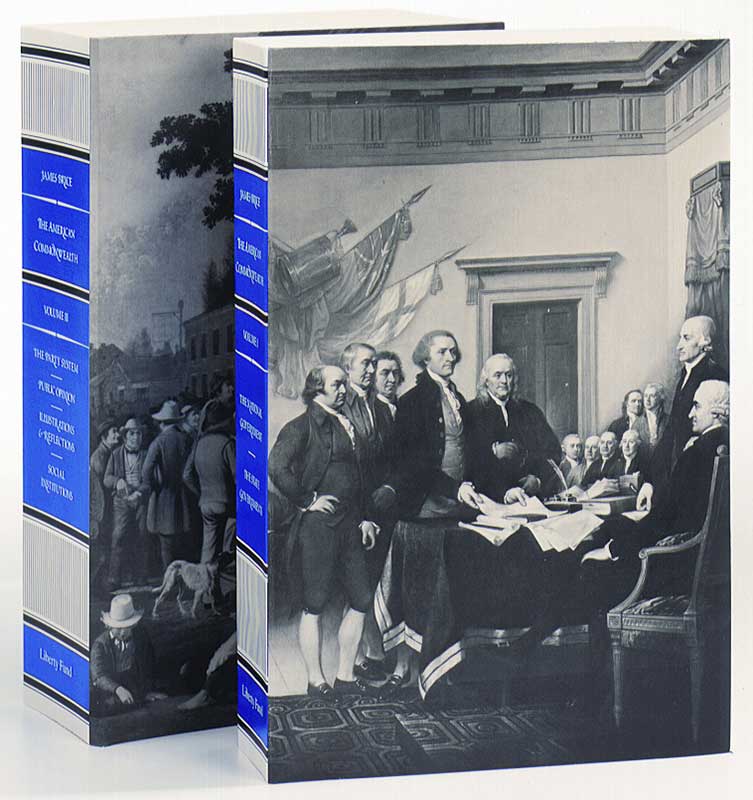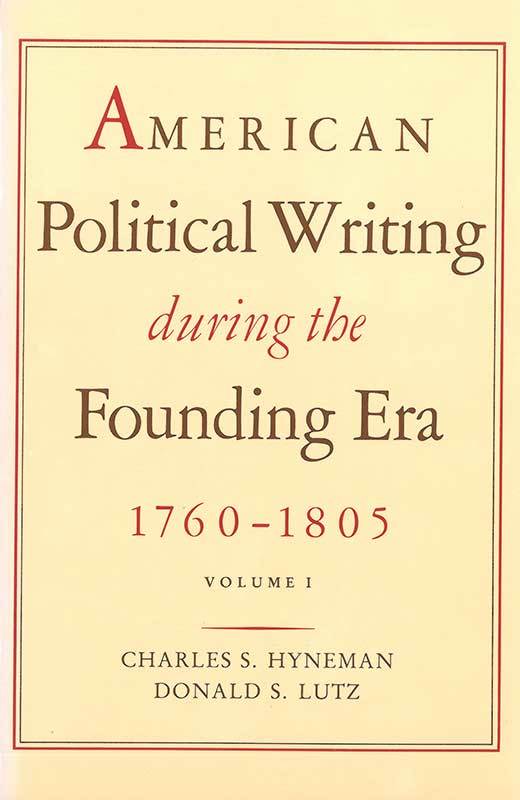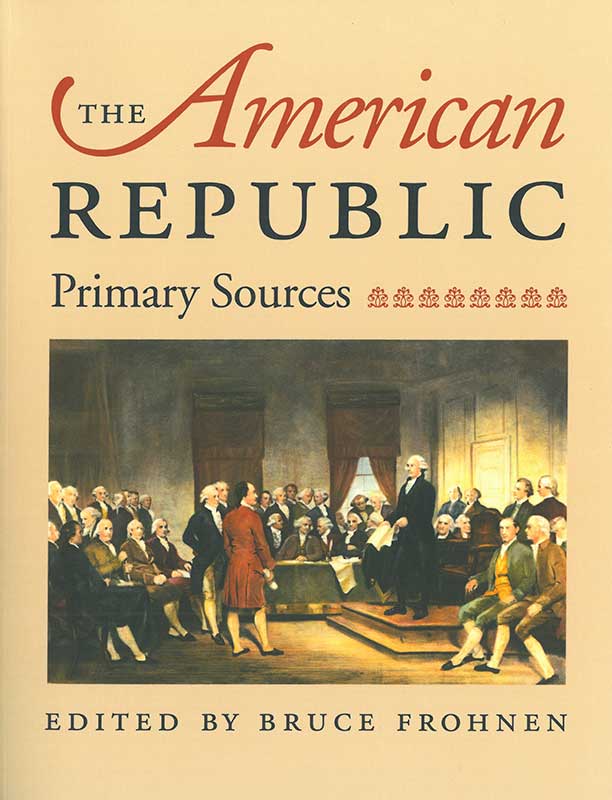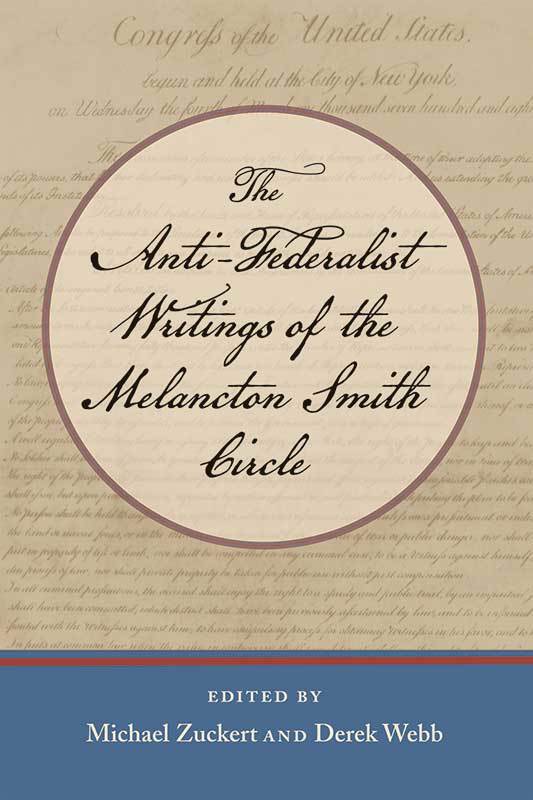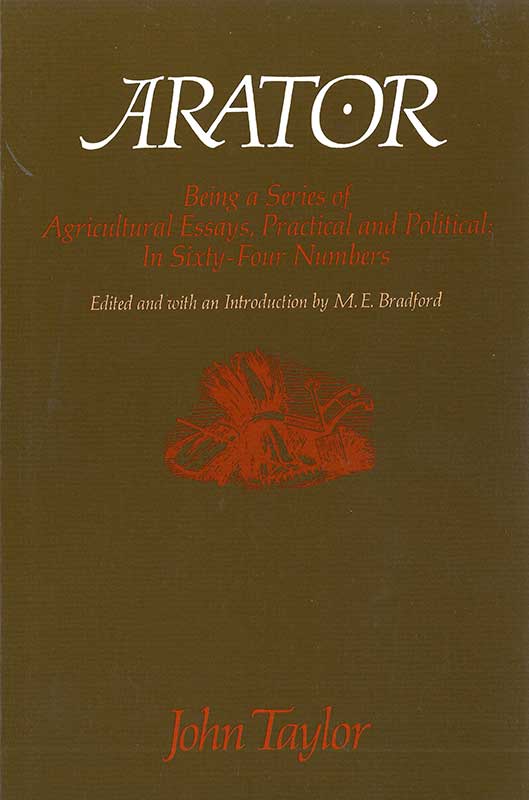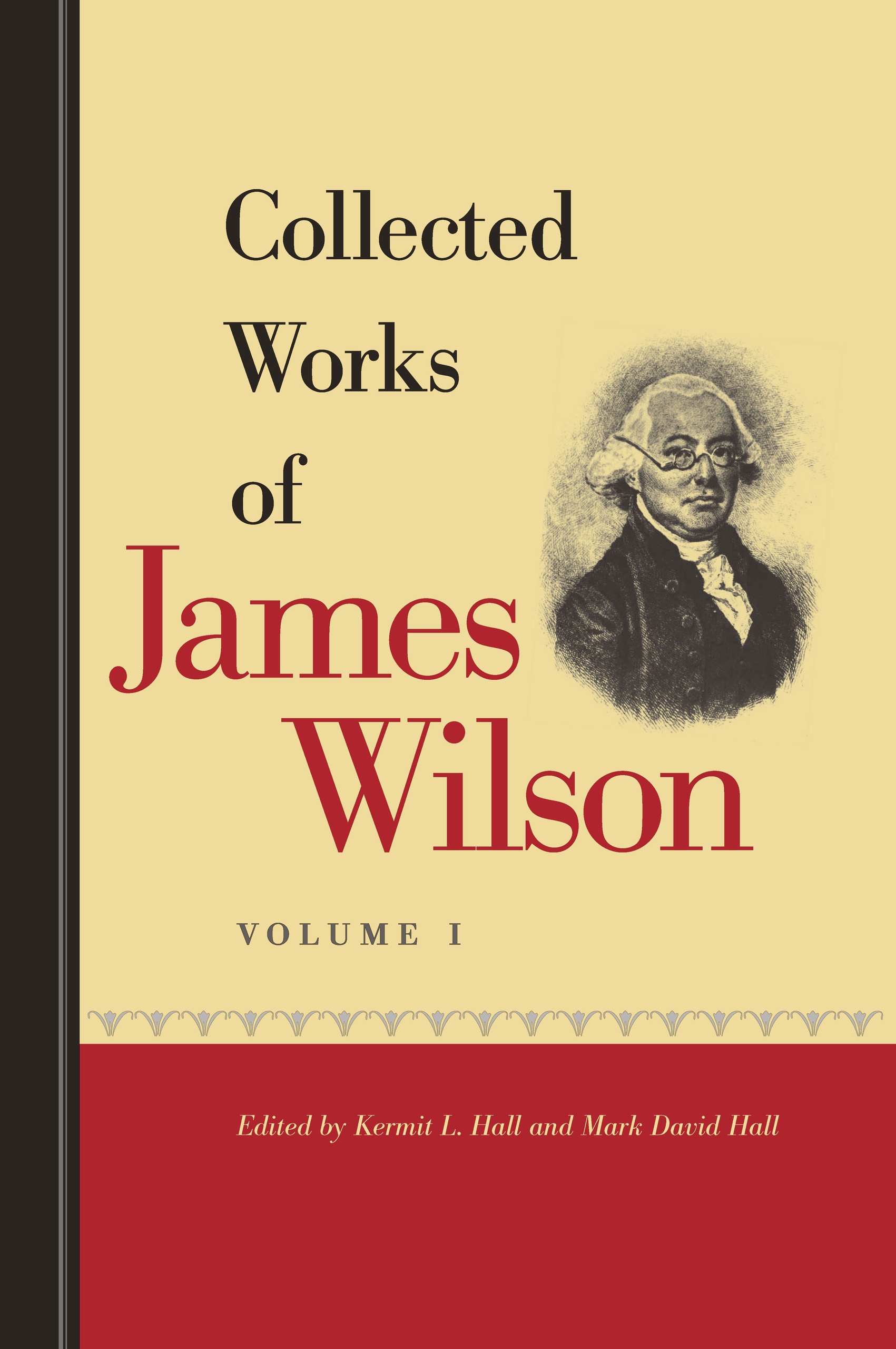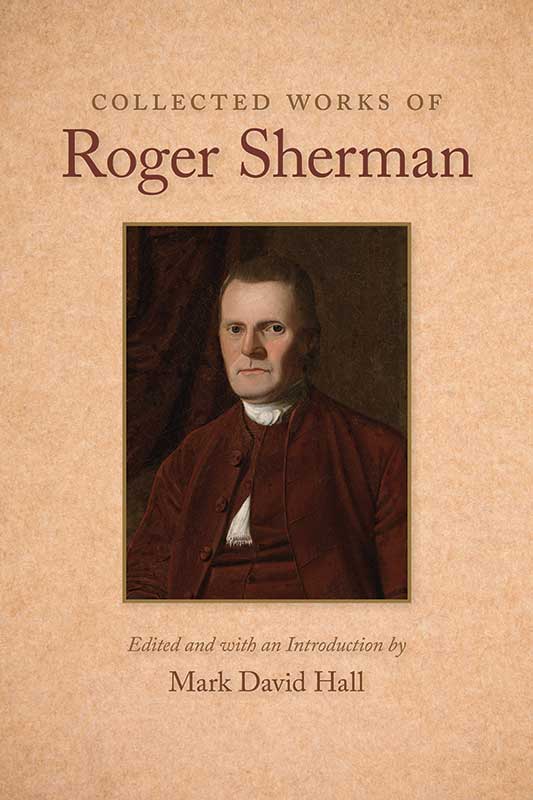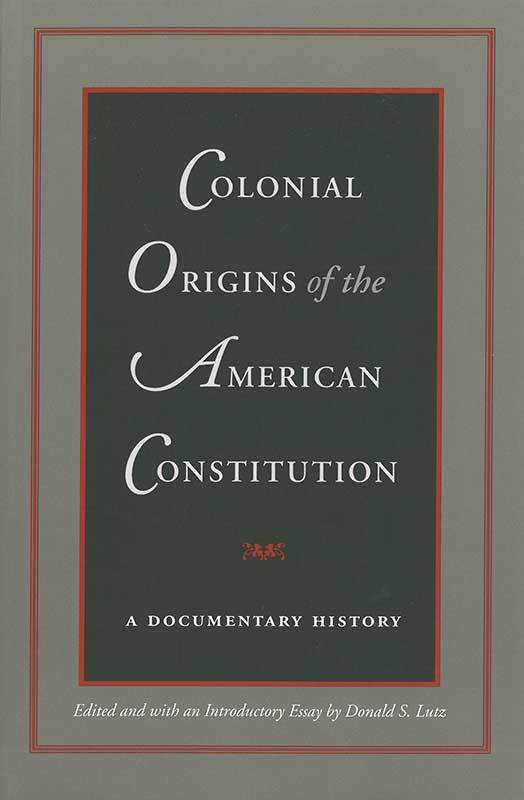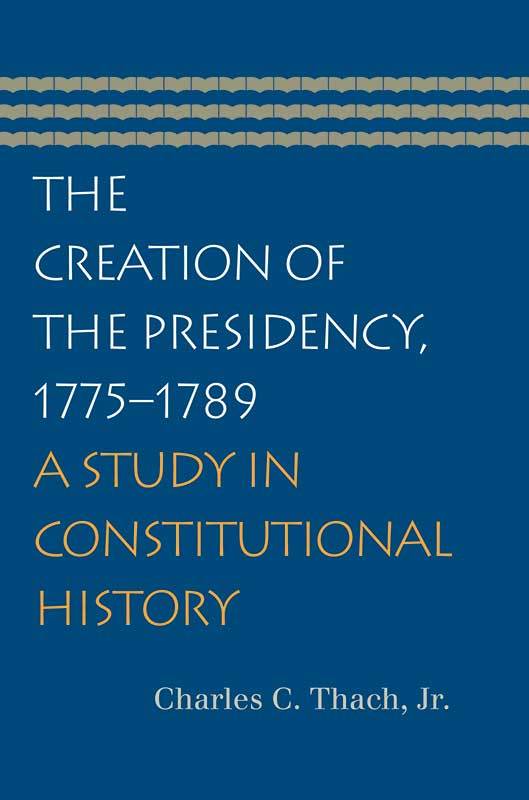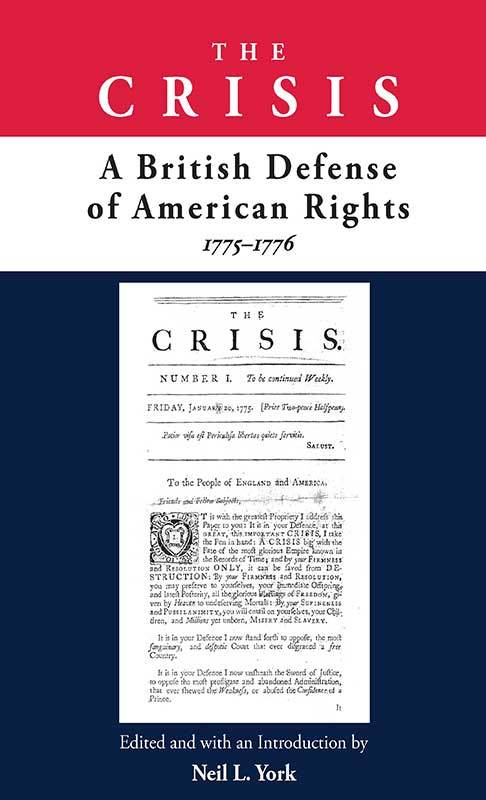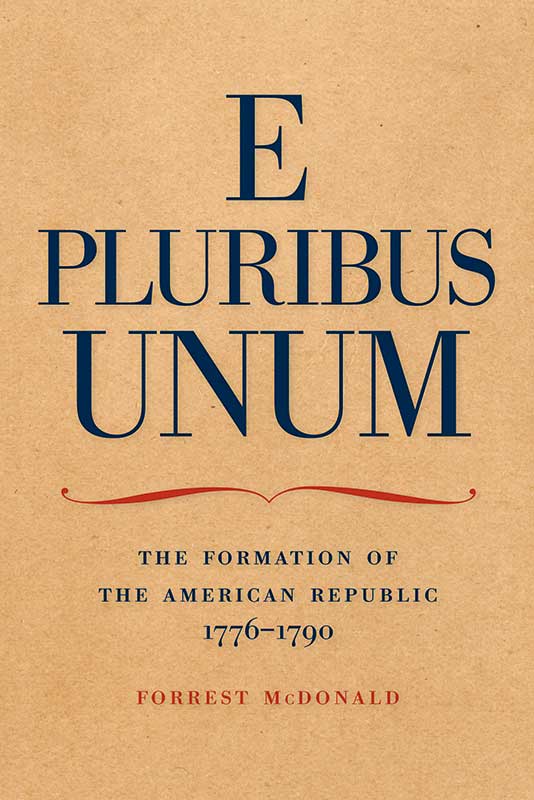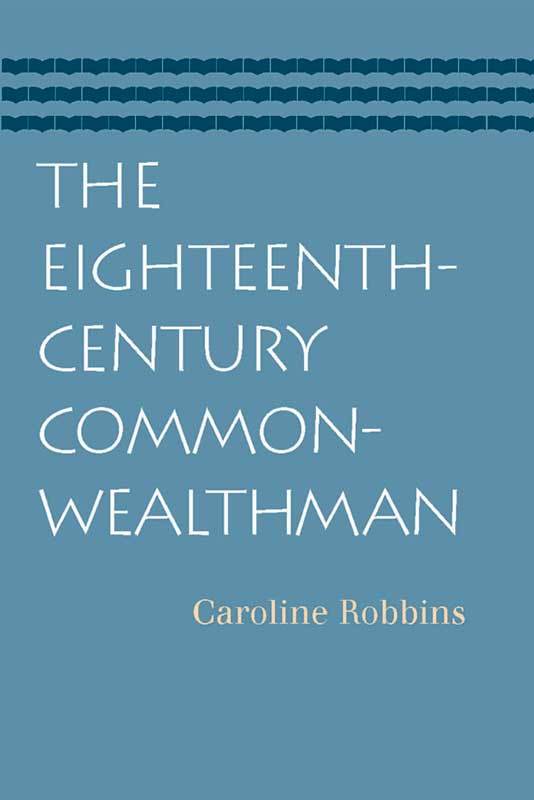American Founding
Liberty Fund’s books about the American Founding era include critical primary sources and other writings that helped shape the nation's cultural, religious, and historical tradition. The writings reveal the character of American discourse about such crucial issues as the nature and importance of local government, the purposes of federal union, and the role of religion in America’s drive for liberty.
-
The American Commonwealth
by James Bryce
/ Learn MoreIn Democracy in America (1835) the Frenchman Alexis de Tocqueville interpreted American society through the lens of democratic political theory. A half-century later the Scotsman James Bryce examined “the institutions and the people of America as they are.” Bryce presented his findings in The American Commonwealth, first published in London in three volumes in 1888. This new Liberty Fund two-volume…
-
American Political Writing During the Founding Era: 1760-1805
by Charles S. Hyneman and Donald S. Lutz
/ Learn MoreThis selection of essays, pamphlets, speeches, and letters to newspapers written between 1760 and 1805 by American political and religious leaders illuminate the founding of the republic. Many selections are obscure pieces that were previously available only in larger research libraries, but all illuminate the founding of the American republic and are essential reading for students and teachers of American…
-
The American Republic
by Bruce Frohnen
/ Learn MoreMany reference works offer compilations of critical documents covering individual liberty, local autonomy, constitutional order, and other issues that helped to shape the American political tradition. Yet few of these works are available in a form suitable for classroom use, and traditional textbooks give short shrift to these important issues. The American Republic overcomes that knowledge gap by providing, in…
-
The Anti-Federalist Writings of the Melancton Smith Circle
by Melancton Smith
/ Learn MoreThe Anti-Federalist Writings of the Melancton Smith Circle makes available for the first time a one-volume collection of Anti-Federalist writings that are commensurate in scope, significance, political brilliance, and depth with The Federalist. Included in this volume as an appendix is a computational and contextual analysis that addresses the question of the authorship of two of the most well-known pseudonymous…
-
Arator
by John Taylor of Caroline
/ Learn MoreThis discussion of the social order of an agricultural republic is Taylor’s most popular and influential work. It includes materials on the relation of agriculture to the American economy, on agriculture and politics, and on the enemies of the agrarian republic. Both statesman and farmer, Taylor is often considered the deepest thinker of all the early Virginians. M. E. Bradford…
-
Collected Works of James Wilson
by James Wilson
/ Learn MoreThis two-volume set brings together a collection of writings and speeches of James Wilson, one of only six signers of both the Declaration of Independence and the United States Constitution, and one of the most influential members of the federal Constitutional Convention in 1787. Wilson’s writings and speeches had a significant impact on the deliberations that produced the cornerstone documents…
-
Collected Works of Roger Sherman
by Roger Sherman
/ Learn MoreRoger Sherman (1721–1793) was the only founder to sign the Articles of Association, the Declaration of Independence, the Articles of Confederation, and the Constitution. He served 1,543 days in the Continental Congress and was a member of the five-man committee that drafted the Declaration of Independence. At the Federal Convention of 1787 he spoke more times than all but three…
-
Colonial Origins of the American Constitution
by Donald S. Lutz
/ Learn MoreThis landmark collection of eighty documents created by the American colonists—and not English officials—is the genesis of American fundamental law and constitutionalism. Included are all documents attempting to unite the colonies, beginning with the New England Confederation of 1643. Donald S. Lutz is Professor of Political Science at the University of Houston.
-
The Creation of the Presidency, 1775?1789
by Charles C. Thach, Jr.
/ Learn MoreFresh from a battle against monarchy, the American Founders were wary of a strong executive, but they were equally conscious that unchecked legislative power risked all the excesses of democracy. Creating an effective executive who did not dominate the legislative body posed a significant challenge. In The Creation of the Presidency, 1775–1789, Charles Thach’s lucid analysis reveals how these conflicting…
-
The Crisis
by Neil L. York
/ Learn MoreThe Crisis was a London weekly published between January 1775 and October 1776. It was the longest-running weekly pamphlet series printed in the British Atlantic world during those years, and it used unusually bold, pithy language. Neither the longevity of the effort nor the colorful language employed would be reason enough to collect and print all ninety-two issues under one…
-
E Pluribus Unum
by Forrest McDonald
/ Learn MoreHaving won independence from England, America faced a new question: Would this be politically one nation, or would it not? E Pluribus Unum is a spirited look at how that question came to be answered. Forrest McDonald is Professor Emeritus of American History at the University of Alabama and author of States’ Rights and the Union.
-
The Eighteenth-Century Commonwealthman
by Caroline Robbins
/ Learn MoreIn this volume, Caroline Robbins adeptly presents a history of the Commonwealthmen, “a gifted and active minority of the population of the British Isles, who kept alive, during an age of extraordinary complacency and legislative inactivity, a demand for increased liberty of conscience.” Caroline Robbins (1903–1999) taught history at Bryn Mawr College from 1929 to 1971 and was chairman of…
Promotions
Stayed tuned for future promotions!

